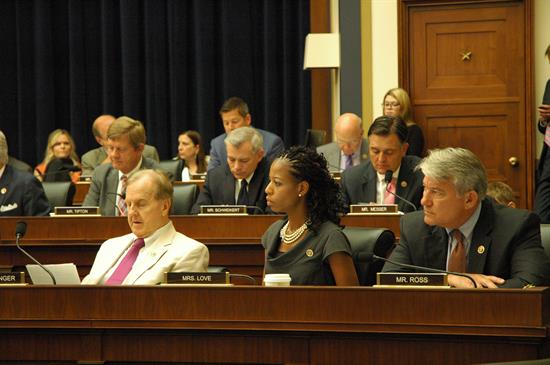 |
The House Financial Services Committee on Thursday began its series of hearings on the impact the Dodd-Frank Act has had on consumers, financial markets and the U.S. economy over the five years since President Obama signed it into law.
Thursday’s hearing focused on how the massive 2,300-page law and its 400 new regulations are a threat to the financial stability of the U.S.
Chairman Jeb Hensarling (R-TX) said in his opening statement, "What is undebatable is the fact that since the passage of Dodd-Frank the big banks are now bigger; the small banks are now fewer. In other words, even more banking assets are now concentrated in the so-called “Too Big to Fail” firms. Pray tell, how does this improve financial stability?"
Key Takeaways from the Hearing:
- Dodd-Frank is based on a false narrative of the financial crisis. The drafters of Dodd-Frank claimed a lack of regulation caused the crisis, yet the truth is financial regulations increased – not decreased – during the decade leading up to the financial crisis.
- Supporters of Dodd-Frank contended it would end “too big to fail” but, to the contrary, Dodd-Frank enshrined “too big to fail” into law, leaving taxpayers exposed to the costs of future bailouts and the financial system less stable.
- Obama Administration officials are fond of citing the dangers to financial stability purportedly posed by the so-called “shadow banking system,” but a far greater danger to both financial stability and the economic well-being of average Americans is posed by an unaccountable “shadow regulatory system” created by Dodd-Frank.
- New bureaucracies like the Consumer Financial Protection Bureau and the Financial Stability Oversight Council (FSOC) operate largely out of public view and are subject to virtually no checks and balances. Yet the decisions of these agencies have the potential to fundamentally alter the landscape of the U.S. economy and affect the lives and livelihoods of millions of Americans.
- Many of the threats to financial stability recently identified by FSOC in its most recent annual report are a direct result of Dodd-Frank and other misguided government policies.
- Dodd-Frank’s Volcker Rule has made capital markets less liquid and more fragile, undermining rather than enhancing financial stability. The lack of liquidity means financial markets have less capacity to deal with shocks and will be more likely to seize up in a panic. Rather than making markets more stable, the new regulations have made them more brittle.
Topline Quotes from Witnesses:
“After five years has Dodd-Frank made American families better off? No. Instead, the overall impact of Dodd-Frank has been to slow our economic recovery, raise prices, reduce choice, and eliminate access to the financial mainstream for American families. And low-income Americans have been hit the hardest.”
- Todd Zywicki, Professor of Law at George Mason University and Mercatus Center Senior Scholar
“After the bill that was to become Dodd-Frank was reported out of the Conference Committee, Chris Dodd famously said, ‘No one will know until this is actually in place how it works.’ Five years later we still do not know the full effects the Dodd-Frank Act will have on U.S. capital markets. We do know, however, that the costs of Dodd-Frank have been borne not just by Wall Street, but by ordinary investors and businesses of all shapes and sizes.”
- Paul Atkins, former Commissioner, U.S. Securities and Exchange Commission
“Although a few modest improvements have been made to increase financial stability, I believe Dodd-Frank, no net, has reduced financial stability. The reason for such is a combination of both errors of commission and omission. Moral hazard has been increased by Dodd-Frank’s expansion of the financial safety net and increased concentration of risk into fewer entities, while the primary 18 causes of the crisis were largely left untouched. I fear if we continue along our current path, we are almost certain to see another financial crisis sometime in the next decade.”
- Mark Calabria, Director of Financial Regulation Studies, Cato Institute